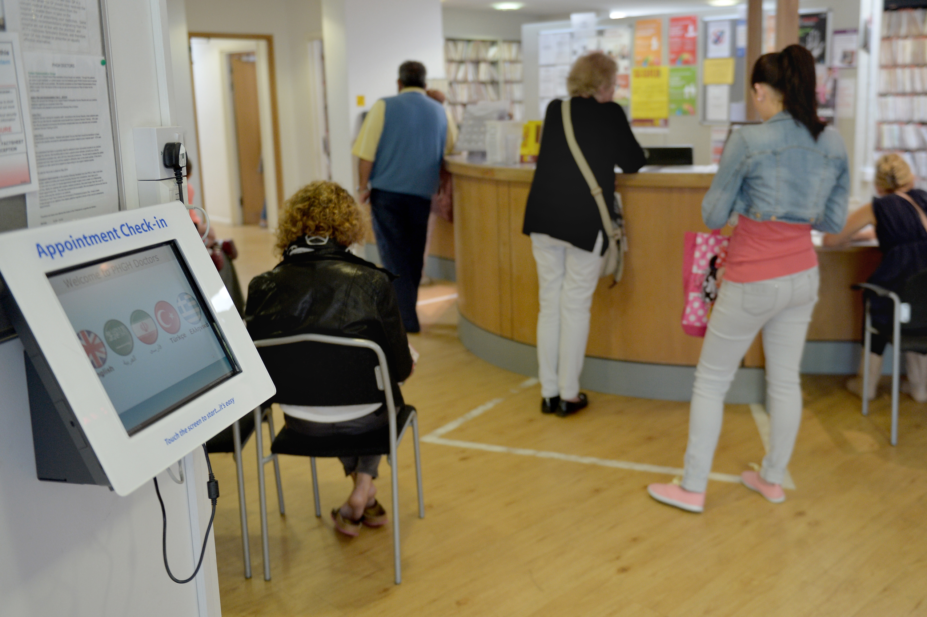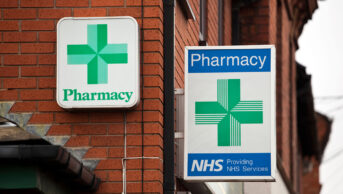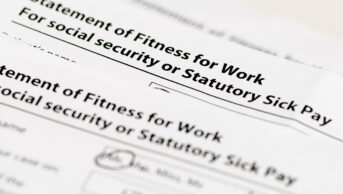
PA images
GP pharmacists increase GP capacity, optimise medicines use and improve patient quality of life, according to an evaluation of the initial pilot phase of NHS England’s Clinical Pharmacists in GP Practices scheme. But GPs’ expectations of the role of practice pharmacists need to be managed, the report warns.
The evaluation, carried out by a team from the school of pharmacy at the University of Nottingham, UK, found that GP pharmacists contributed significantly to patient safety; contributed medicines and prescribing expertise; and supported patients with long-term conditions, including providing healthy lifestyle advice.
Data from a survey, SWOT (strengths, weaknesses, opportunities and threats) analysis and qualitative analysis showed that ‘improved capacity’ was cited as the main benefit of the scheme by pharmacists, site leads and a wide range of external stakeholders, at a practice and patient level.
Survey data also showed that for 70% of GP pharmacists, conducting medication reviews in person was a major part of their role, while 80% said they dealt with prescription queries every day and 63% said they carried out discharge reviews every day. Over 50% said they gave lifestyle advice every day and 65% described this as being a major part of their role.
Matthew Boyd, associate professor in patient safety and pharmacy practice at the University of Nottingham and lead author of the evaluation, said: “Throughout the process of putting together this report we repeatedly came across examples of the positive impact the clinical pharmacists were having on patient outcome.
“Patients told us they understood their medicines in a way they never had, and were now trying to follow lifestyle advice to help manage their health conditions such as diabetes and had improved conditions following a medication review,” he added.
The report also found evidence of pharmacists contributing to medicines optimisation in a number of ways on a day-to-day basis, resulting in cost saving and increased safety in general practice. It gives the example of a GP pharmacist who initiated implementation of National Institute of Health and Care Excellence guidelines for prescribing for particular long-term conditions.
The report said patients were also happy with their treatment from GP pharmacists, appreciating longer appointments and opportunities for in-depth high quality reviews, which led some to report that they had a better understanding of their medicines.
GP pharmacists taking part in the pilot reported high levels of satisfaction, with 89% either agreeing or strongly agreeing that they enjoyed working in their role. They also said they were able to work autonomously and were accepted by other professionals in the practice.
However, the research identified a disparity in expectations in some cases with some GPs expecting pharmacists to carry out administrative, medicines management duties and other prescribing tasks and that band 7 pharmacists would be ready to go straight into patient-facing consultations. “Unrealistic expectations on behalf of the practices had been demotivating for some of the pharmacists,” said the report.
The experts said that clear guidelines should be drawn up to reduce misunderstandings.
NHS funding for the scheme has been granted for three years and the report authors said GP pharmacists should be working fully autonomously in patient-facing roles for a minimum of two days per week to ensure the service is sustainable.
Keith Ridge, chief pharmaceutical officer at NHS England, said pharmacists on the scheme were “helping GPs to manage demands on their time, they upskill the wider practice team about medicines and crucially, they are providing better outcomes and quality of life for patients, especially elderly patients and those with chronic illnesses”.
Sandra Gidley, chair of the Royal Pharmaceutical Society English Pharmacy Board, said that, in light of the report, the Society hoped to see pharmacists remain embedded in GP surgeries on a large scale after the initial funding has ended.
“It’s clear that with 70% of pharmacists reporting that clinical medication reviews are a major part of the role, the profession’s skills and knowledge are being used appropriately to benefit patients, especially those with long-term conditions.
“Having the consultation time to examine if individual patients are on the best treatment regimen, ensure they understand the benefits of their medicines, how to use them and cope with any side-effects improves patient safety and adherence to medicines.
“It also creates a more active patient engagement with their condition as they experience better health and personal support from the pharmacist, which in turn drives greater self-care and further health improvements,” she said.
In 2016, the General Practice Forward View, outlined an investment of £31m to pilot 470 pharmacists in over 700 GP surgeries. This was supplemented by new central investment of £112m to extend the programme, with the aim of having over 2,000 GP pharmacists by 2020 — a ratio of 1 pharmacist per 30,000 patients.


